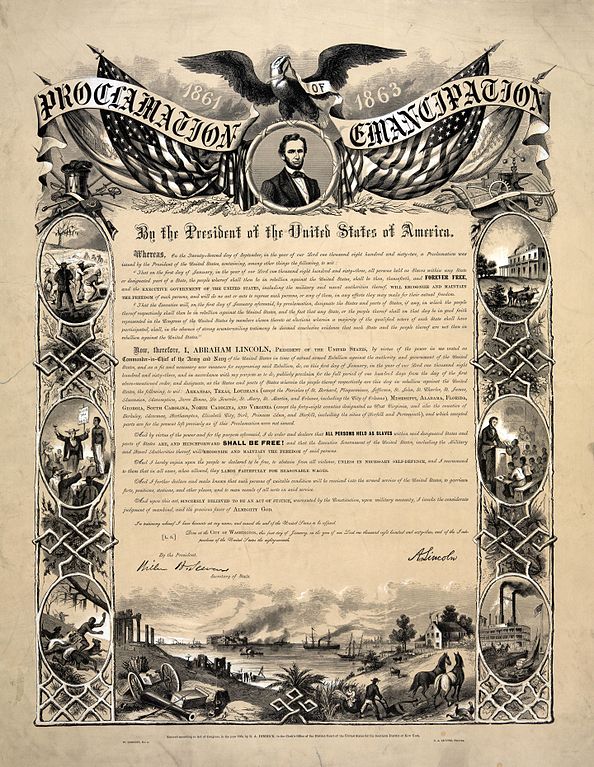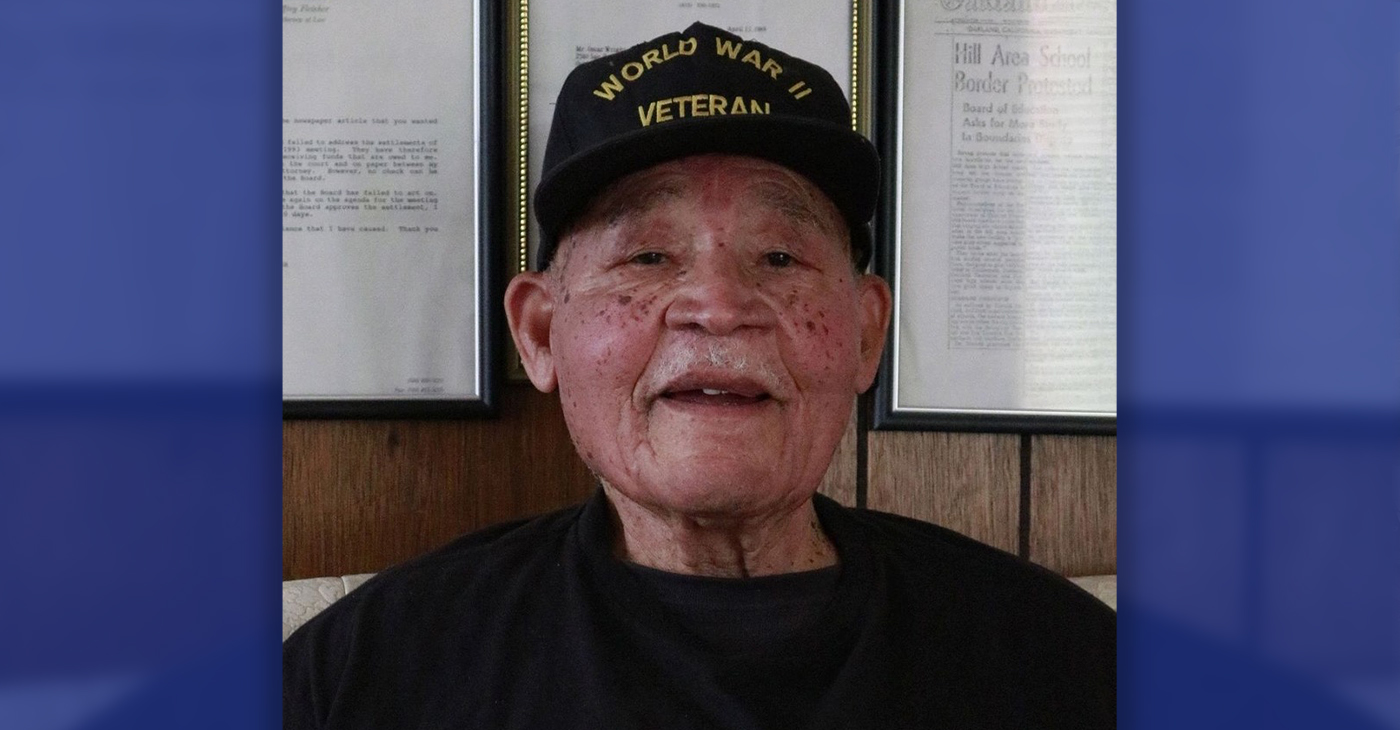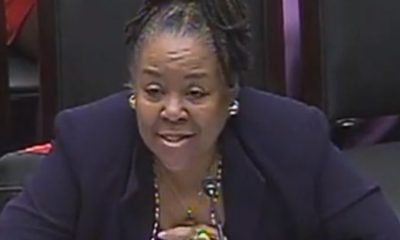History
Opinion: The Spirit of the Emancipation Proclamation is Under Attack Again Today


Rev. Jesse Jackson Sr.
Wednesday, Jan. 1, begins the new year. It also marks the anniversary of a new America.
On Jan. 1, 1863, as the Civil War, the bloodiest of America’s wars, approached the end of its second year, President Abraham Lincoln issued the Emancipation Proclamation, declaring “that all persons held as slaves” within the rebellious states “are and henceforward shall be free.”
The Proclamation was limited to fit wartime necessities. It applied only to the states that had seceded from and were at war with the United States, leaving slavery untouched in loyal border states. It also exempted the parts of the Confederacy that had already come under Northern control. And, of course, the freedom it promised depended on the victory of the North.
Yet, the Proclamation’s effect was far more expansive than its terms. It transformed the war into a war of freedom. As the U.S. Archives summarizes, “Every advance of federal troops expanded the domain of freedom.” And of course, it dramatically aided the Union cause, with nearly 200,000 Black soldiers and sailors fighting for the Union.
The Proclamation was the beginning. Upon victory, Congress passed three amendments to the Constitution — the 13th, 14th and 15th Amendments — designed to finish the job of transforming the country that was, in the words of Abraham Lincoln, “half slave and half free” to one in which all were guaranteed — under the Constitution — the” blessings of liberty.”
The 13th Amendment outlawed slavery and involuntary servitude; the 14th began to define the rights of citizens and guaranteed equal protection under the law; the 15th prohibited discrimination in the right to vote on the basis of “race, color, or previous condition of servitude.” (Ironically, the Constitution still does not guarantee the right to vote to all).
The amendments, forced upon the defeated Southern states as a condition for re-entry into the Union, launched the reconstruction that sought for a few short years to bring the country together. Newly empowered Blacks joined with progressive whites to build coalitions that transformed state constitutions, guaranteeing the right to education, launching programs to provide more equal justice under the law.
Sadly, Reconstruction met with fierce reaction across the South. Segregation masters succeeded the slave masters. The Ku Klux Klan, formed by the elites of Southern communities, terrorized newly freed Blacks. The right to vote was sabotaged by various tricks and traps, from the poll tax to unequally administered tests on the Constitution, to simple threat and terror. In 1896, the Supreme Court to its shame ruled that apartheid — the mythic “separate but equal” standard — was legal in the United States. By the turn of the century, segregation was the law of the land.
It took 100 years and the historic civil rights movement to overturn that reaction, and to begin to reclaim the promise of equal justice under the law and the revive the right to vote. The civil rights struggle, which united the movement of courageous citizens on the ground with the force of Lyndon Johnson in the White House, produced, among other legislation, the Civil Rights Act and the Voting Rights Act that brought America closer to its promise.
Today, we once more see the stirrings of reaction against that reconstruction. Racial division, stoked cynically from the highest offices in the land, once more is on the rise. African Americans, Latinos, Jews, Muslims, gays, women — all once more feel the rise of resentment and often of hate. The Supreme Court has gutted a critical part of the Voting Rights Act. States under reactionary governors are inventing new ways to restrict access to the vote.
Will this reaction be as successful as that which undermined the promise of the Emancipation Proclamation? America, I believe, is better than that. Our democracy is stronger than it was then. We can mobilize and vote in large numbers to keep expanding the domain of freedom.
On this Jan. 1, let us remember the Emancipation Proclamation, signed by the greatest of our presidents, a Republican, and devote ourselves to redeeming its promise.
Activism
Living His Legacy: The Late Oscar Wright’s “Village” Vows to Inherit Activist’s Commitment to Education
Kingmakers of Oakland (KOO), a nonprofit organization that works to improve educational and life outcomes for Black boys and men, stated that “Oscar Wright is one of the most prolific, consistent, and committed advocates of equity for Black students and Black Families here in Oakland for the past six decades.”

By Antonio Ray Harvey, California Black Media
Activists mourning Oscar Carl Wright’s death, have pledged to continue his lifelong mission of advocating for Black students and families in Northern California.
Wright, 101, who passed away on Nov. 18, was involved in Oakland’s educational affairs until his death.
Now, friends and admirers acknowledge that carrying on his legacy means doubling down on the unfinished work that Wright dedicated his life, time, and resources to, according to Y’Anad Burrell, a family friend and founder of San Francisco-based Glass House Communications (GHC).
“Mr. Wright did a lot of work around equity, specifically, for Black students based on their needs — whether it was tutoring, passing classes, or graduating,” Burrell said.
Wright became a champion for his children’s education, recognizing the disparities between their school experiences and his own upbringing in the Mississippi Delta.
Burrell told California Black Media (CBM) that the crisis of unequal access to resources and a quality education continues to affect the Oakland Unified School District (OUSD).
According to Oakland Reach, in the city of Oakland, only 3 in 10 Black and Brown students are reading at or above grade level. In addition, only 1 in 10 are doing math at or above grade level.
Oakland REACH is a parent-run, parent-led organization. It aims to empowers families from the most underserved communities to demand high-quality schools for their children.
Wright’s work as an activist had impact across the state but he was primarily known in the Bay Area. Alongside the Black United Front for Educational Reform (BUFER), he filed a complaint against OUSD for violating the Civil Rights Act of 1964.
In 2000, the OUSD school board proposed an action plan to address educational inequity, but it was never implemented.
Wright later founded the African American Honor Roll Celebration at Acts Full Gospel Church, an award that recognizes Black students with a grade point average of 3.0 or better. Each year, more than 1,000 students are honored at this ceremony.
Kingmakers of Oakland (KOO), a nonprofit organization that works to improve educational and life outcomes for Black boys and men, stated that “Oscar Wright is one of the most prolific, consistent, and committed advocates of equity for Black students and Black Families here in Oakland for the past six decades.”
Burrell said that one of the main reasons Wright’s work was so essential for families and children in Oakland that is the direct relationship between acquiring a quality education and affording quality housing, maintaining food security, achieving mental wellness, and securing stable employment.
Wright was the child of sharecroppers from Coahoma County, Mississippi. He attended Alcorn State University, a Historically Black College and University (HBCU).
In the late 1950s, Wright and his family relocated to the Bay Area where he worked as a contractor and civil engineer. He later became an active member of the National Association for the Advancement of Colored People (NAACP).
Burrell said the people who will carry on Wright’s work are part of a “village” that includes KOO’s CEO Chris Chatmon. Wright was a mentor to Chatmon.
“It will not be one entity, one person, or one organization that picks up the baton because it was a village effort that worked alongside Mr. Wright for all these years,” Burrell said.
Burell says that legacy will live on.
Activism
Celebrating East Bay Leaders Keith Carson and Federal Glover at Geoffrey’s Inner Circle
Several leaders were in attendance including fellow Alameda Supervisors Elisa Marquez and Lena Tam, Superior Court judge-elect Terry Wiley, and African American Sports and Entertainment Group’s founder Ray Bobbitt, along with many other guests.

By Magaly Muñoz
After decades of public service in the East Bay, community members and leaders came together to celebrate Alameda County Supervisor Keith Carson and Contra Costa Supervisor Federal Glover at Geoffrey’s Inner Circle Thursday afternoon.
Several leaders were in attendance including fellow Alameda Supervisors Elisa Marquez and Lena Tam, Superior Court judge-elect Terry Wiley, and African American Sports and Entertainment Group’s founder Ray Bobbitt, along with many other guests.
First elected in 1992, Carson has served District 5 for 24 years and announced his decision to step away from his seat earlier this year, just before the deadline to submit new candidate applications.
He dedicated his long career to bringing access to health care, addressing homelessness, lowering crime, improving business retention, and growing job opportunities in Alameda County.
Glover began his tenure as Contra Costa Supervisor in 2000 and previously served as mayor of Pittsburg in 1998. During his time as Supervisor, he supported initiatives on public transportation, created committees for public safety, and supported task forces on health.
“These two distinguished leaders have dedicated their lives to improving the lives of so many people across Alameda and Contra Costa (counties). Their work has touched every corner of the East Bay,” Alameda County Supervisor and President Nate Miley said.
Leaders from both counties spoke on the supervisors’ legacies and their dedicated years of service.
Contra Costa Supervisor John Gioia said that Glover was the type of person that grew with each challenge that crossed him, especially after he had major surgery in 2020. But Gioia said that the treatment did not deter Glover.
“He’s had tougher races for reelection than any member of our board that I can recall, and he’s always come back stronger than before,” Gioia said.
Sharing a county border, Gioia complimented Carson on his ability to sway leaders from both sides of the political aisle to listen on the issues affecting locals and residents across the nation.
Shannell Scales Preston, who is taking over Glover’s D5 seat in 2025, told event attendees that Glover was a mentor to her for many years. He often would call Preston after Pittsburg City Council meetings with remarks about her performance and how well she spoke up on certain issues.
With Glover spending years as the only Black elected official in local government, Preston would ask him how he managed to not feel lonely about the job. She then congratulated him on being the only supervisor in Contra Costa to have all Black mayors under his district in 2023.
Preston said he’s been a leader to many diverse groups and his tenure has seen leaders of all backgrounds, but particularly paving the way for Black leaders in predominantly white areas.
Miley, who has shared his entire 24-year tenure on the Alameda Board with Carson, tearfully wished the exiting supervisor luck and said he would miss him dearly.
Carson said that as we embark on a “dark time” for everyone across the nation and worldwide in 2025, it’s important to continue communicating and working with groups from all backgrounds because that is the only way things will get done.
“There have been many lonely nights, but then the sun comes out in the morning when you continue to think, ‘I can make a difference,’” Carson said.
Activism
Through Two Programs, Shuja Helps Others Get a Second Chance at a First-Class Life
Damon Johnson, a peer counselor who serves as the executive director of Black Men Speak and Men and Women of Color will be affected by the state’s new rules. Living with a behavioral health condition, he is an advocate and a leader. Damon, best known as Shuja, was incarcerated for 34 years and today is advocating for the rights of persons with similar lived experience and for the survival of peer-led programs like the one he manages.

By Melody Parker, Gloria Woodson, Jaleah Winn and Damon Shuja Johnson
Special to The Post
Under recently passed Proposition 1, California’s behavioral health services will be allocated $1 billion for services for the unhoused in 2026-27, Governor Gavin Newsom announced last summer.
Although some of the funds from the Mental Health Services Act were diverted to Proposition 1, individuals living with behavioral health conditions and housing challenges are maintaining hope for wellness and recovery.
Damon Johnson, a peer counselor who serves as the executive director of Black Men Speak and Men and Women of Color will be affected by the state’s new rules. Living with a behavioral health condition, he is an advocate and a leader. Damon, best known as Shuja, was incarcerated for 34 years and today is advocating for the rights of persons with similar lived experience and for the survival of peer-led programs like the one he manages.
Two days after his reentry to the community, Shuja began work as an outreach coordinator for Black Men Speak. Within a year, Shuja was promoted and later appointed to director after the loss of former Black Men Speak Executive Director Joe Anderson.
A native of North Oakland, Shuja was raised in an all-women household after his grandfather was murdered. Though dealing with his own grief, the loss caused Shuja to become the “man of the family.”
His grandmother’s nurturing helped him to overcome the trauma of his grandfather’s death which, “gave him a foundation as a child.” He recalls fond memories of his childhood, like riding a new bike he received for the holidays. “My friends and myself spent meaningful time together as children,” he said. “Together, we would build go-carts, climb trees, have rock fights and find worms, crabs and bees.”
But his trauma impacted his childhood and led to his being impacted by the system. Shuja grew up mostly in detention halls and prison.
Besides directing Black Men Speak! (BMS!)/Men and Women of Color (MWOC), he is also the director of a self-help center in Oakland. There, Shuja and the peer workers provide support to the unhoused. He coordinates a digital literacy program, co-facilitates trainings for peer support specialists, organizes a service animal resource, provides peer support and directs speakers’ bureaus.
BMS! and MWOC are programs increasing wellness and recovery by sharing stories of hope and journeys to meaningful living. Members have authored presentations and spoken to audiences on topics such as post-traumatic stress disorder, family, community violence, self-worth, spirituality, and mental health, alternative therapies, eight dimensions of wellness, reentry, single parenting and health.
The members have been featured nationally and locally, at trainings and conferences and throughout Alameda County Behavioral Health Care services. The organization has been in operation for over a decade.
It all began in 2009 and received nonprofit status in 2012. The group developed from Peers Organizing Community Change, formerly known as Pool of Consumer Champions (POCC), originally established as an all-men’s committee.
The committee co-founders Dewitt Buckingham and Darnell Livingston organized men with experience in the public mental health system for a speaker’s bureau. This was the consensus of the committee after a process facilitated by Katrina Killian, Steven Bucholtz, Sally Zinman and Jaleah Winn.
The committee and facilitators composed the following mission. The BMS!/MWOC mission is “to inform and enlighten the mental health community and the general public about issues concerning men and women of color suffering from mental health and substance abuse challenges, through storytelling thereby promoting ad increasing wellness, recovery, and freedom.”
Shuja has a vision and plans for the organization. “BMS!/MWOC will be sustained with the funding of $1.5 million for capacity building to hire people to pay salaries for staff.”
Currently, BMS!/MWOC has volunteers assisting the programs. Funding will enable the enhancement, increase in self-help services and provide for outings and meals. “We want exposure as when adults and children have taken the free BART rides to go to places outside of Oakland that they never traveled,” Shuja said. “We want to go to Africa. More influential communities can travel, and we need the same opportunity.”
Despite several barriers that are facing Shuja and the organization, he is determined to fulfill the nonprofit’s mission. “There is money. Children wear $200 shoes. We want to teach financial literacy, not to be a slave but how to buy and how to keep. BMS! needs some rich friends and we also need friends who have know-how. We need support from private and public sectors.
“BMS! is one of the only Black organizations in ACBHCS. Today we have the SB 803, Peer Support Specialist bill that will enable us to bill Medicaid/Medi-Cal and only two full-time staff. We do not have the support of the community.”
Shuja is honored to be a participant in advocacy for legislation to improve the lives of peers and is not discouraged by changes to statewide policies. The current changes coming down the pike with Prop 1 are motivating him to work more diligently for the rights of behavioral health clients.
“This is about employment and empowerment and authenticity. The unhoused can be asked about hope and faith. I had to have faith and hope every day that I awakened in prison. I would have died in prison, but I had hope, faith and peer support and it manifested.
“My first reentry job is to go back to my family and save them and if this is repeated among families then we will have wellness and community. Kids raise themselves today. Today, grown folks cannot be in kids’ business. We want to do better. How can we bring back the good of the past?”
Today, the good of the past is coming back with the work of Black Men Speak! Men and Women Of Color. All support is welcome. Black Men Speak and Men and Women of Color welcome contributions and invitations to collaborate. In order to contact the program staff please reach out to 510-969-5086 or shuja@blackmenspeak.org.
-

 Activism4 weeks ago
Activism4 weeks agoOakland Post: Week of November 27 – December 3, 2024
-

 Activism2 weeks ago
Activism2 weeks agoButler, Lee Celebrate Passage of Bill to Honor Congresswoman Shirley Chisholm with Congressional Gold Medal
-

 Activism2 weeks ago
Activism2 weeks agoPost News Group to Host Second Town Hall on Racism, Hate Crimes
-

 Activism2 weeks ago
Activism2 weeks agoDelta Sigma Theta Alumnae Chapters Host World AIDS Day Event
-

 Business2 weeks ago
Business2 weeks agoLandlords Are Using AI to Raise Rents — And California Cities Are Leading the Pushback
-

 Activism3 weeks ago
Activism3 weeks agoOakland Post: Week of December 4 – 10, 2024
-

 Activism2 weeks ago
Activism2 weeks agoOakland Post: Week of December 11 – 17, 2024
-

 Arts and Culture1 week ago
Arts and Culture1 week agoPromise Marks Performs Songs of Etta James in One-Woman Show, “A Sunday Kind of Love” at the Black Repertory Theater in Berkeley





























































